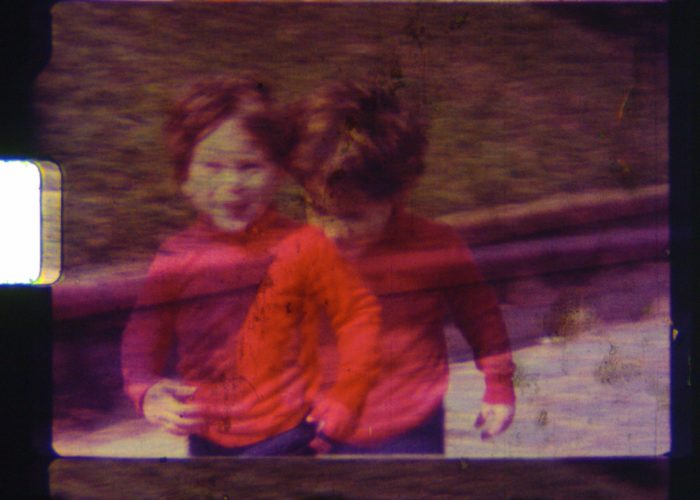
Let’s Take a Walk (2018) by Moira Lacowicz
CROSSROADS 2020 — program 6
theories of obliscence / erasing the grid
program online August 27–September 30
program community partner: Artists’ Television Access

Erasing the grid, a frame hangs in the air. Meditations on worlds past and worlds soon to be past, on the world outside the world. Films drawing from archives both violent and idyllic which consider lacunae, absence and erasure. Films which evoke journeys inward and glances cast back at chilled lost worlds (including our own). Evocations of nostalgic memories of our brief times together. Contemplations of the timelessness of past and future.
SCREENING: Let’s Take a Walk (2018) by Moira Lacowicz; Through a Field (2019) by Faith Arazi and Maddie Mori; A Winter Song (2019) by Jon Behrens; Specialized Technique (2018) by Onyeka Igwe; The Losing Battle (2019) by Jean Sousa; Signal 8 (2019) by Simon Liu; Bathers (2019) by Douglas Urbank; to forget (2019) by Lydia Nsiah; Jeevithaye Mayawa / ජීවිතයේ මායාව / Imitation of Life (2020) by Rajee Samarasinghe
TRT: 61 minutes
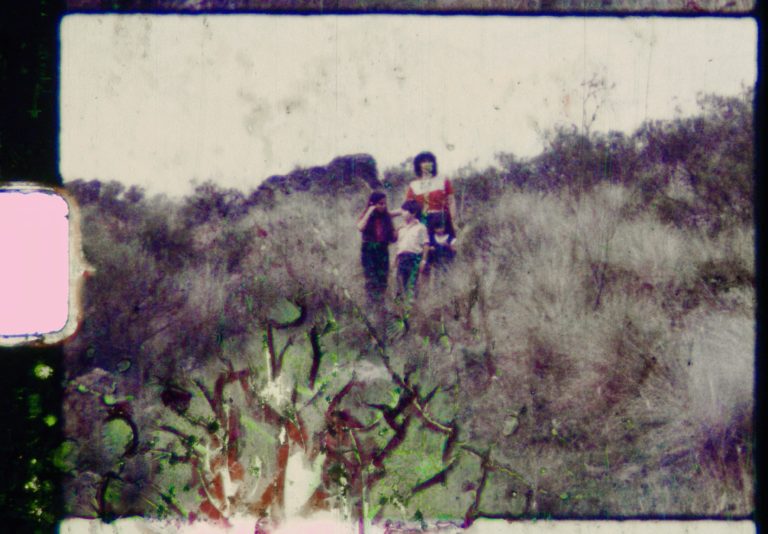
Let’s Take a Walk (2018) by Moira Lacowicz
The memory present in the image as a sign of absence. Let’s Take a Walk is a film made with family footage found in Brazil, Uruguay and Argentina and intervened with various chemical processes. (Moira Lacowicz)
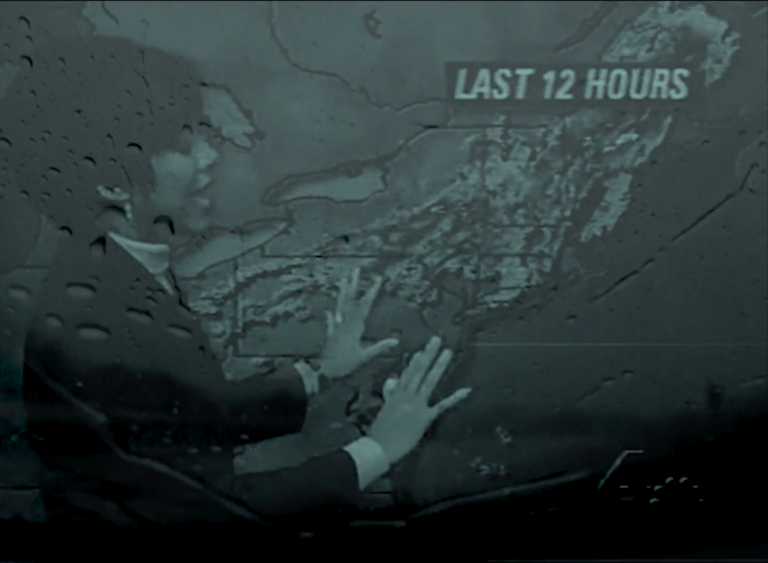
Through a Field (2019) by Faith Arazi & Madeleine Mori
A meditation on Dionysus, in different weights and freedoms. A collaborative examination on the relationship between domesticity, or the materialistic world, and escape, or the natural world. (Faith Arazi/Madeleine Mori)
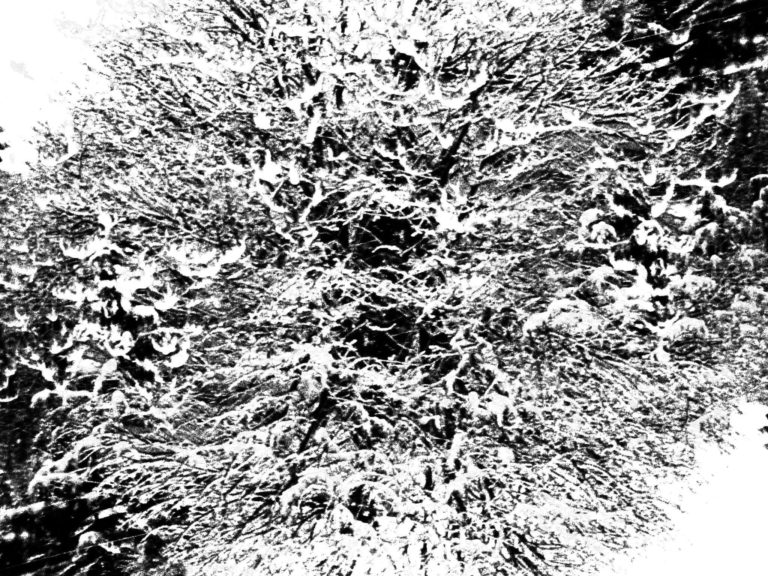
A Winter Song (2019) by Jon Behrens
This film was shot during the cold dark of winter. Manipulated on the JK optical printer. (Jon Behrens)
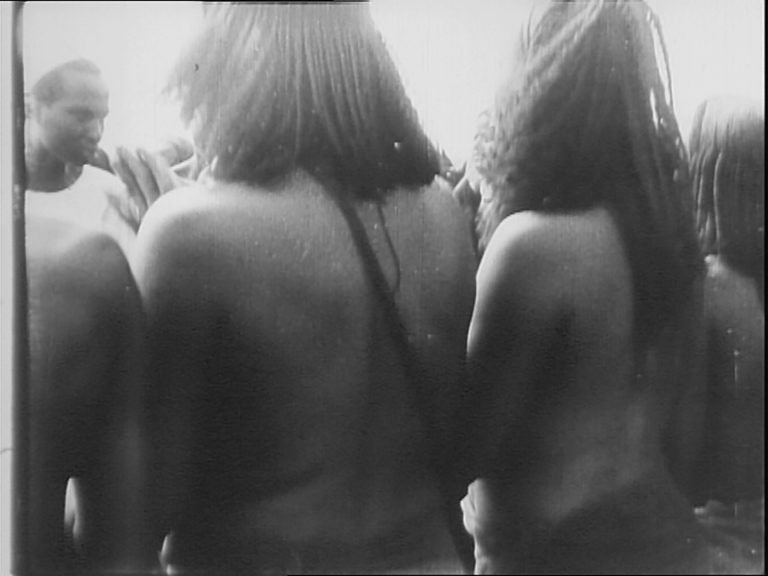
Specialized Technique (2018) by Onyeka Igwe
William Sellers and the Colonial Film Unit developed a framework for colonial cinema which included slow edits, no camera tricks and minimal camera movement. Hundreds of films were created in accordance with this set of rules. In an effort to recuperate black dance from this colonial project, Specialised Technique, attempts to transform this material from studied spectacle to livingness. (Onyeka Igwe)
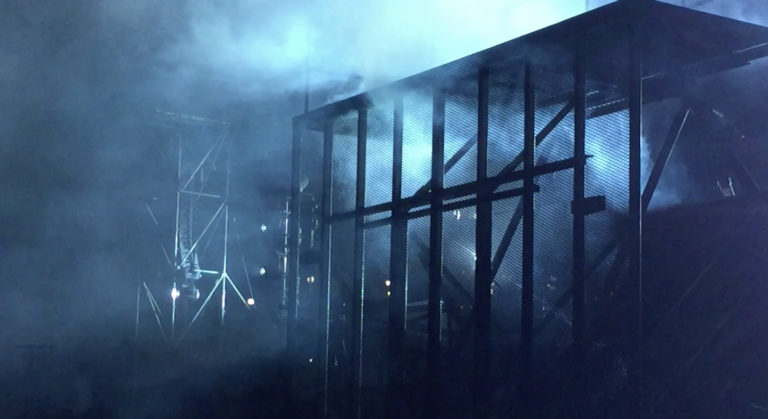
The Losing Battle (2019) by Jean Sousa
The Losing Battle is part of an octet of film poems inspired by my late Aunt Alice’s poetry. In this poem she uses the metaphor of war for a lover’s quarrel. My intention with the film is to amplify the emotional tone of the words, through repetition and staccato editing of image and sound in an attempt to convey the physical discomfort of being in an argument without winners, only losers. The source material for the image is an outdoor performance of the Quebec Circus, a comment on the overly dramatic lyrics of the poem, with the final smoke-filled image referencing a battlefield. (Jean Sousa)
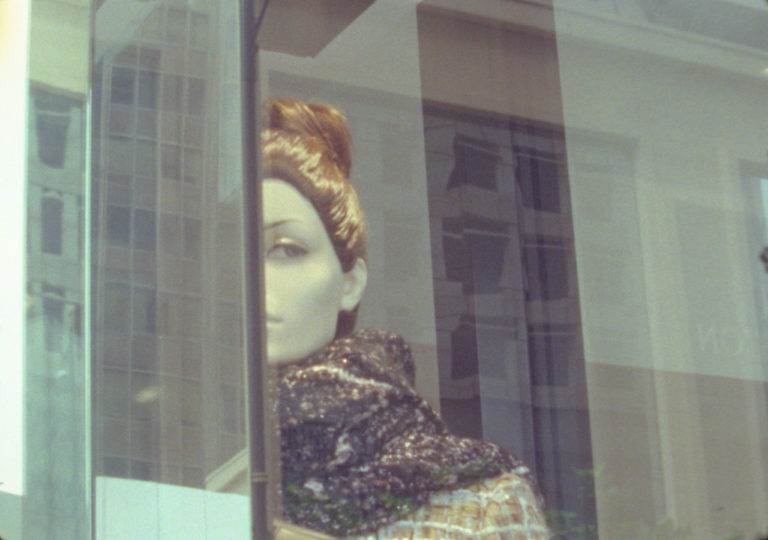
Signal 8 (2019) by Simon Liu
They said a storm is calling this way but we’re still waiting. Lives carry on in Hong Kong as traces of civic upkeep morph into sites of remembrance. Decorative structures mimic nature then occasionally malfunction—transforming common spectacle to warning signs. The light urges to tell us something but can’t quite get its point across, patience tested for another day. (Simon Liu)
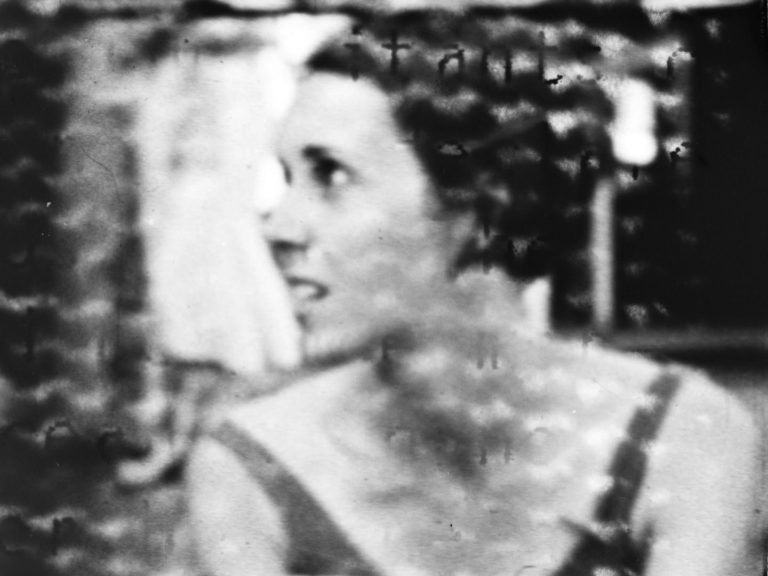
Bathers (2019) by Douglas Urbank
Reflections of an idyllic day spent between three companions celebrating the beach, the waves and their brief time together. (Douglas Urbank)
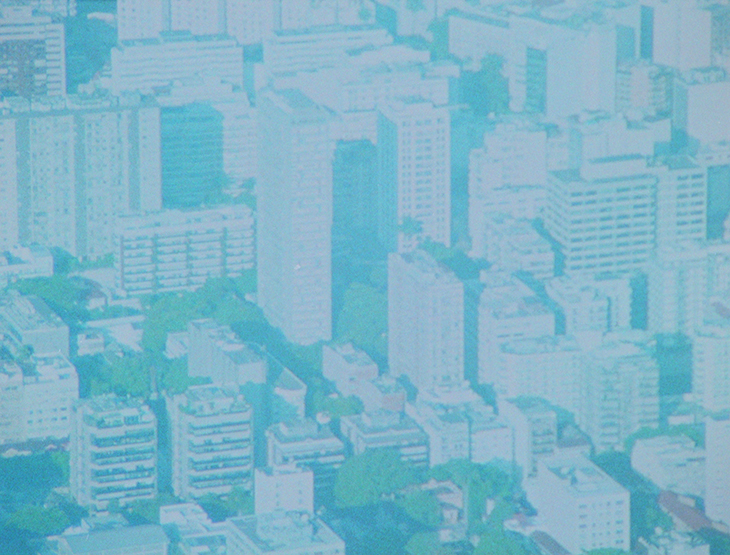
to forget (2019) by Lydia Nsiah
to forget is a filmic journey on the potentialities of forgetting and its resemblance to remembering. Recorded on expired Super-8 and 16mm film, forgetting becomes productive and ”’visible” in non-existing, fading and colour-transformed film exposures. This (non-)documentation of possibly empty and fading spaces (to be) is further highlighted by Jejuno’s trance-like and uncanny sound composition: The abyss is present. (Lydia Nsiah)
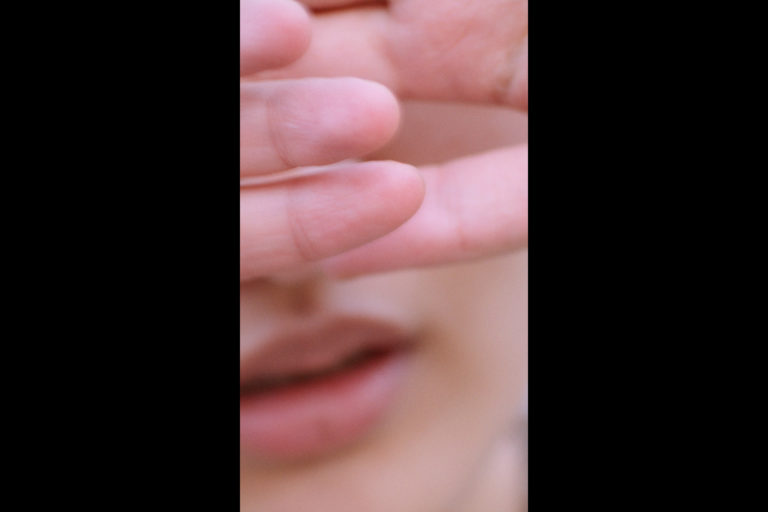
Jeevithaye Mayawa / ජීවිතයේ මායාව / Imitation of Life (2020) by Rajee Samarasinghe
Conceptually informed by Trinh T. Minh-ha’s seminal film Reassemblage, this short piece describes an impressionistic encounter with a woman seen from a great distance through a curious telescopic lens. (Rajee Samarasinghe)
 Moira Lacowicz (Brazil) was born in 1992 in Fraiburgo, Santa Catarina, Brazil. Lives and works in Buenos Aires, Argentina, after studying Social Communication at the Positivo University (Curitiba) and Cinema at the Universidad del Cine Foundation (Buenos Aires). Since 2018, she explores possibilities of analog cinema through alternative processes. Her films have been screened worldwide including at venues in the United States, Canada, India, Romania, Scotland, Japan and Peru among others.
Moira Lacowicz (Brazil) was born in 1992 in Fraiburgo, Santa Catarina, Brazil. Lives and works in Buenos Aires, Argentina, after studying Social Communication at the Positivo University (Curitiba) and Cinema at the Universidad del Cine Foundation (Buenos Aires). Since 2018, she explores possibilities of analog cinema through alternative processes. Her films have been screened worldwide including at venues in the United States, Canada, India, Romania, Scotland, Japan and Peru among others.
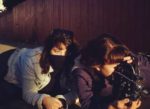 Faith Arazi (US; she/her) is an artist and AV technician based in San Francisco. Faith has interned for Craig Baldwin at Other Cinema, inspected and prepared countless 16mm artist made prints for Canyon Cinema and remains an active member of the volunteer run microcinema Artists’ Television Access (est. 1984). She is currently a projectionist and art preparator at Yerba Buena Center for the Arts. Faith’s art practice is rooted in collage and non narrative filmmaking that payfully explores capitalist anxieties, latinx identity and poetic mystery. Madeleine Mori (US; she/her) is a Japanese/American poet originally from San Francisco. Her work has appeared in BOAAT, Cosmonauts Avenue, Salt Hill and Sixth Finch, among others venues. She received an MFA from New York University, where she served as a Poetry Editor of Washington Square Review. She lives in Brooklyn and is the Poetry Editor at Pigeon Pages.
Faith Arazi (US; she/her) is an artist and AV technician based in San Francisco. Faith has interned for Craig Baldwin at Other Cinema, inspected and prepared countless 16mm artist made prints for Canyon Cinema and remains an active member of the volunteer run microcinema Artists’ Television Access (est. 1984). She is currently a projectionist and art preparator at Yerba Buena Center for the Arts. Faith’s art practice is rooted in collage and non narrative filmmaking that payfully explores capitalist anxieties, latinx identity and poetic mystery. Madeleine Mori (US; she/her) is a Japanese/American poet originally from San Francisco. Her work has appeared in BOAAT, Cosmonauts Avenue, Salt Hill and Sixth Finch, among others venues. She received an MFA from New York University, where she served as a Poetry Editor of Washington Square Review. She lives in Brooklyn and is the Poetry Editor at Pigeon Pages.
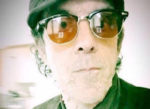 Jon Behrens (US) is a Seattle based filmmaker/composer. His films have been screened at film festivals, colleges and museums throughout the world since the early 1980’s including screenings at Antimatter Film Festival Canada, Seattle International Film Festival, TIE Film Festival Colorado, London Underground Film Festival, Crossroads Film Festival San Francisco, Festival International des Cinemas Differents et Experimentaux in Paris, Alternative Film and Video festival in Novi Beograd Serbia, Sydney Underground Film Festival, Festival des Cinémas Différents de Paris and many many others. His work ranges from personal film diary’s to abstract hand painted optically printed works. In addition to filmmaking Jon Behrens is also a composer and has created sound designs for most of his own films starting about 10 years ago, as well as non film related compositions. Jon Behrens is also the co-founder co-director of the Interbay Cinema Society which also produces the Engauge Experimental Film Festival.
Jon Behrens (US) is a Seattle based filmmaker/composer. His films have been screened at film festivals, colleges and museums throughout the world since the early 1980’s including screenings at Antimatter Film Festival Canada, Seattle International Film Festival, TIE Film Festival Colorado, London Underground Film Festival, Crossroads Film Festival San Francisco, Festival International des Cinemas Differents et Experimentaux in Paris, Alternative Film and Video festival in Novi Beograd Serbia, Sydney Underground Film Festival, Festival des Cinémas Différents de Paris and many many others. His work ranges from personal film diary’s to abstract hand painted optically printed works. In addition to filmmaking Jon Behrens is also a composer and has created sound designs for most of his own films starting about 10 years ago, as well as non film related compositions. Jon Behrens is also the co-founder co-director of the Interbay Cinema Society which also produces the Engauge Experimental Film Festival.
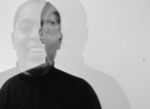 Onyeka Igwe (United Kingdom) is an artist and researcher working between cinema and installation. She was born and is based in London, UK. In her non-fiction video work Onyeka uses dance, voice, archives, sound design and text to create structural “figure-of-eights,” a format that exposes a multiplicity of narratives. Her works have been shown at the Institute of Contemporary Arts and LUX, London; the Berlin Biennale; International Film Festival Rotterdam and the Smithsonian African American Film Festival, among others. She has exhibited at articule, Montreal; Trinity Square Video, Toronto; and Jerwood Space, London as well as other spaces. She was awarded the New Cinema Award at Berwick Film and Media Arts Festival 2019 and the 2020 Arts Foundation Fellowship Award for Experimental Film.
Onyeka Igwe (United Kingdom) is an artist and researcher working between cinema and installation. She was born and is based in London, UK. In her non-fiction video work Onyeka uses dance, voice, archives, sound design and text to create structural “figure-of-eights,” a format that exposes a multiplicity of narratives. Her works have been shown at the Institute of Contemporary Arts and LUX, London; the Berlin Biennale; International Film Festival Rotterdam and the Smithsonian African American Film Festival, among others. She has exhibited at articule, Montreal; Trinity Square Video, Toronto; and Jerwood Space, London as well as other spaces. She was awarded the New Cinema Award at Berwick Film and Media Arts Festival 2019 and the 2020 Arts Foundation Fellowship Award for Experimental Film.
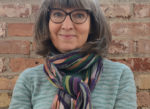 Chicago based artist Jean Sousa (US) has worked in film and photography since the late ‘70s. Her experimental films are concerned with the interplay between text, sound, and image, the physical properties of the medium, and narrative form as a structuring device. She is interested in exploring the female subject and various gender tropes. Her work falls under the aegis of personal cinema with the belief that the personal is political. Sousa’s films have screened worldwide at venues including (among others) the National Film Theater in London; Image Forum, Tokyo; the Funnel, Toronto; the Museum of Contemporary Art, Chicago; Anthology Film Archives; the Ann Arbor Film Festival and Onion City Film Festival. The films of Jean Sousa are are distributed by the Canyon Cinema Foundation.
Chicago based artist Jean Sousa (US) has worked in film and photography since the late ‘70s. Her experimental films are concerned with the interplay between text, sound, and image, the physical properties of the medium, and narrative form as a structuring device. She is interested in exploring the female subject and various gender tropes. Her work falls under the aegis of personal cinema with the belief that the personal is political. Sousa’s films have screened worldwide at venues including (among others) the National Film Theater in London; Image Forum, Tokyo; the Funnel, Toronto; the Museum of Contemporary Art, Chicago; Anthology Film Archives; the Ann Arbor Film Festival and Onion City Film Festival. The films of Jean Sousa are are distributed by the Canyon Cinema Foundation.
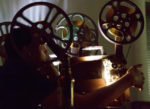 Simon Liu (Hong Kong/United Kingdom) is a film artist whose work centers on building a lyrical catalogue of the rapidly evolving inner and outer landscapes of his place of origin in Hong Kong through alternative documentary forms, abstract diary films, multi-channel video installations and 16mm projection performances. These films act as a storage mechanism which offer potential re-examinations of the city’s history and Liu’s shifting notions of selfhood as a person of Chinese/English decent who was born in a former British colony. An upcoming solo-presentation of Liu’s work will take place at the Museum of Modern Art in New York as part of their ongoing Modern Mondays series. Liu’s work has shown at NYFF: Projections, IFFR: Tiger Short Competition, TIFF: Wavelengths, Sundance Film Festival, New Directors/New Films at MoMA & Lincoln Center, British Film Institute, M+ Museum, Tai Kwun Contemporary, Cinéma du Réel, CROSSROADS at SFMoMA, Light Industry, Sheffield Doc/Fest, and “Dreamlands: Expanded” with the Whitney Museum of American Art & Microscope Gallery. Liu is a 2019 Jerome Hill Artist Fellow and a recipient of the NYSCA / Wave Farm Media Arts Assistance Fund in 2018. He is a teacher at the Cooper Union School of Art and a member of the Brooklyn based artist-run film lab Negativeland. Liu is currently editing his first feature film, Staffordshire Hoard.
Simon Liu (Hong Kong/United Kingdom) is a film artist whose work centers on building a lyrical catalogue of the rapidly evolving inner and outer landscapes of his place of origin in Hong Kong through alternative documentary forms, abstract diary films, multi-channel video installations and 16mm projection performances. These films act as a storage mechanism which offer potential re-examinations of the city’s history and Liu’s shifting notions of selfhood as a person of Chinese/English decent who was born in a former British colony. An upcoming solo-presentation of Liu’s work will take place at the Museum of Modern Art in New York as part of their ongoing Modern Mondays series. Liu’s work has shown at NYFF: Projections, IFFR: Tiger Short Competition, TIFF: Wavelengths, Sundance Film Festival, New Directors/New Films at MoMA & Lincoln Center, British Film Institute, M+ Museum, Tai Kwun Contemporary, Cinéma du Réel, CROSSROADS at SFMoMA, Light Industry, Sheffield Doc/Fest, and “Dreamlands: Expanded” with the Whitney Museum of American Art & Microscope Gallery. Liu is a 2019 Jerome Hill Artist Fellow and a recipient of the NYSCA / Wave Farm Media Arts Assistance Fund in 2018. He is a teacher at the Cooper Union School of Art and a member of the Brooklyn based artist-run film lab Negativeland. Liu is currently editing his first feature film, Staffordshire Hoard.
 Douglas Urbank (US), based in Boston, Massachusetts, is an artist with a background in sculpture and drawing who began to experiment with film in 2008. He is a founding member of the AgX filmmakers collective, established in 2015. He is also a member of Fort Point Theatre Channel, an independent theater company bringing together an ensemble of artists from the worlds of theater, music and visual arts. Between 2001 and 2013 he was host of a radio program devoted to experimental, improvisational and other unconventional music and sound art.
Douglas Urbank (US), based in Boston, Massachusetts, is an artist with a background in sculpture and drawing who began to experiment with film in 2008. He is a founding member of the AgX filmmakers collective, established in 2015. He is also a member of Fort Point Theatre Channel, an independent theater company bringing together an ensemble of artists from the worlds of theater, music and visual arts. Between 2001 and 2013 he was host of a radio program devoted to experimental, improvisational and other unconventional music and sound art.
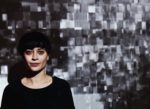 Lydia Nsiah (Austria) lives and works in Vienna and abroad. As filmmaker, visual artist and researcher she works with the in-between, abysses and gaps in audiovisual knowledge production by means of film, photography, text and installation. She works, publishes and exhibits internationally on Virtuality, Forgetting and Remembering, Anti*colonial Practice, Failure and Error, Film Art and Use.
Lydia Nsiah (Austria) lives and works in Vienna and abroad. As filmmaker, visual artist and researcher she works with the in-between, abysses and gaps in audiovisual knowledge production by means of film, photography, text and installation. She works, publishes and exhibits internationally on Virtuality, Forgetting and Remembering, Anti*colonial Practice, Failure and Error, Film Art and Use.
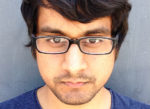 Rajee Samarasinghe (Sri Lanka/US) is a filmmaker born and raised in Sri Lanka. Rajee received his BFA from UCSD and his MFA from CalArts. He is currently working on his debut feature, Your Touch Makes Others Invisible, inspired by his childhood experiences during the Sri Lankan civil war—the project received a Sundance Documentary Fund grant and was invited to Berlinale Talents’ Doc Station as well as True/False Film Festival’s inaugural PRISM program. Rajee’s work has been exhibited at the Tiger Short Competition at the International Film Festival Rotterdam, New Directors/New Films by Film Society of Lincoln Center & MoMA, BFI London Film Festival, FIDMarseille, Internationale Kurzfilmtage Oberhausen, Slamdance Film Festival, SFFILM Festival, REDCAT, Message to Man, Havana Film Festival, Media City Film Festival, Berwick Film & Media Arts Festival, Onion City Experimental Film and Video Festival, Chicago Underground Film Festival, Los Angeles Asian Pacific Film Festival, and San Diego Asian Film Festival among many others. He’s received the “Tíos Award for Best International Film” at the Ann Arbor Film Festival and the “Film House Award for visionary filmmaking” at the Athens International Film + Video Festival among others.
Rajee Samarasinghe (Sri Lanka/US) is a filmmaker born and raised in Sri Lanka. Rajee received his BFA from UCSD and his MFA from CalArts. He is currently working on his debut feature, Your Touch Makes Others Invisible, inspired by his childhood experiences during the Sri Lankan civil war—the project received a Sundance Documentary Fund grant and was invited to Berlinale Talents’ Doc Station as well as True/False Film Festival’s inaugural PRISM program. Rajee’s work has been exhibited at the Tiger Short Competition at the International Film Festival Rotterdam, New Directors/New Films by Film Society of Lincoln Center & MoMA, BFI London Film Festival, FIDMarseille, Internationale Kurzfilmtage Oberhausen, Slamdance Film Festival, SFFILM Festival, REDCAT, Message to Man, Havana Film Festival, Media City Film Festival, Berwick Film & Media Arts Festival, Onion City Experimental Film and Video Festival, Chicago Underground Film Festival, Los Angeles Asian Pacific Film Festival, and San Diego Asian Film Festival among many others. He’s received the “Tíos Award for Best International Film” at the Ann Arbor Film Festival and the “Film House Award for visionary filmmaking” at the Athens International Film + Video Festival among others.